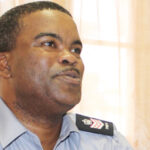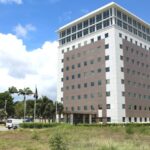One of the main benefits of free primary and secondary education which was ushered into Barbados by late prime minister and Father of Independence Errol Walton Barrow, was to provide Barbadians with a major tool through which they could lift themselves out of poverty and disenfranchisement. A critical feature of education is that it provides one with a heightened intellectual foundation on which to reason and to come to judgements that are based principally on facts rather than misplaced emotion.
Barbadians over the years have shown the ability to make decisions and come to conclusions based on rational assessment. It is a quality which they must continue to embrace fervently. Of course, as happens with human beings, many decisions, assessments and conclusions are also made on emotion, familial connections, political alignments, religious beliefs and any number of reasons that might depart from logical, lucid and deliberate thought.
Barbados is a heavily politicised nation. This fact has been reflected time and again whenever the two major parties – the Barbados Labour Party and the Democratic Labour Party – hold the reins of political power.
Barbados is not alone in this situation. However, that is no excuse.
Whenever political decisions or blunders are made, support or castigation is regularly guided by political affiliation. What is considered ridiculous under one political party is viewed as an enlightened decision under the other, and what could be deemed revolutionary and for the good of the country under one administration is held up to public ostracism under the other. When the citizenry of small democracies such as Barbados engages in such polarised thinking, it makes a mockery of free education, the benefits of free education, and the financial outlay historically involved.
Since politics infiltrates every aspect of our lives, it is not only incumbent on the average citizen to make sound judgements but it is also critical that agencies such as the police force, civil society organisations, the judiciary, and especially the media, ensure that their thoughts, strategies, practices and decisions are not influenced in any way by the political class – particularly when implementation of political policies can have far-reaching consequences for the average citizen.
Our political class, like those of all nations, is made up of human beings. These individuals are not to be hero-worshipped. They are to be seen as vulnerable as the butcher, the baker or the candlestick maker – because they are. Their words and deeds must be scrutinised objectively and dispassionately, screened for veracity and sincerity, held up to accountability, and sanctioned when necessary or praised when deserved.
History is replete with examples of members of the political class with tremendous contributions and equally those found wanting.
Barbadians, like citizens in other small developing countries in the Caribbean, must guard their democratic principles as if their lives and those of generations to come depend on their actions. They must hold all their political leaders to account, whether clothed in red, blue, yellow, or a combination of all.
Our laws must have at their core the desire to protect and uplift the quality of life of all citizens and promote good governance.
We railed against Apartheid in South Africa for decades and Apartheid was rooted in law. We can best protect our democracy when we see and treat the political class as our equals and not our masters. We owe it to ourselves and our education.
The post Guarding our democracy appeared first on Barbados Today.


